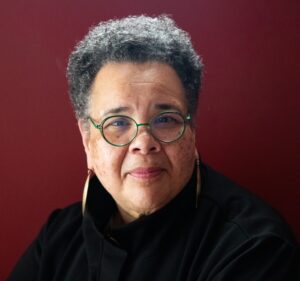
Are You Okay?
In the family waiting room at Abington Hospital, a nurse delivered news to my father and me. She informed us that my mother’s second surgery in four days had been a success. After her announcement, the nurse seemed confused when my father did not react. My father’s mental condition was not evident to most people. His dementia did not allow him to react.
I thanked the nurse, patted my dad on his hand, then went out into the hallway. About three steps out of the room I collapsed against the wall.
“Are you okay?” asked a stranger.
I was leaning, dazed with eyes turned down at the floor, trying to decide if I was going to cry or keep holding back the tidal wave of tears.
Without meeting the caring stranger’s eyes, I replied, “Yes.”
Taking me at my word, the man dressed in blue scrubs and black sneakers continued down the corridor and disappeared through the double doors.
“Are you okay?” I found it quite easy to lie. In the moment, I did not know what I needed, but I knew I was not okay. I knew I needed help, but I was the one who was the help provider, the caregiver, the only child. I was a kind of tired I had never been.
During their last years, both of my parents experienced dramatic health issues. I cared for both, first in their home, then I moved them to my house. While caregiving, I experienced a kind of weariness that I had never before felt. I was on faculty trying to meet all the obligations of a tenured appointment while navigating the doctor appointments for two elderly people. I was tending to household chores for two homes, writing a second book, and accepting consultations to make extra money. I was worn-out. In retrospect, I am surprised exhaustion did not debilitate me into my own sickness or death.
When I was a child, I was raised to be helpful. In elementary school I was proud when my teacher reported to my parents how helpful I was in class to her or to other students. In our home, being helpful to our neighbors and church was a glad obligation. My brother and I were taught that helping would provide meaning and purpose to our lives. Mahlia Jackson, part of the soundtrack of our household, reinforced this faith stance with her rendition of “If I Could Help Somebody.” She sang, “…. then my living will not be in vain.” My parents made it quite clear that the strength and health of our church and neighborhood depended upon our interconnection, interdependence and the support provided by those who were able to help. Our family was a helping family – capable of being of service. Lending help was a bedrock value of our family’s life. This communal ethic of helpfulness was now stretched so thin it was harming me.
By the time I was leaning against the wall in the hospital corridor, our family’s code of helpfulness had deteriorated into my collapse. In retrospect, I had befriended my fatigue. On the few days I did not feel tired I wondered why. As I write today, I thank the man in the hospital for inquiring about my state of being. I can only imagine what kind of help I might have received if I had answered truthfully and told him, “No, I am not okay.”
Each summer Wabash Center hosts groups of colleagues. Most arrive exhausted. I suspect many colleagues are the kind of exhausted I was in the hospital corridor. Over the days we are convened, my staff and I watch as participants rest in clean beds, eat balanced meals, hydrate, distance themselves from agitations, and engage in heaping portions of play and fun. We witness the exhausted slow their pace and refocus. By day three or four we can see that clinched jaws have loosened, furrowed eyebrows have unstacked, and previously shallow breathing has deepened. The fatigue gives way to vitality. People unfurl, unknot, unwind. We watch as colleagues who arrived vacant and mere shadows of themselves return to themselves. I am glad Wabash can provide a space for renewal and restoration – at least a little bit.
My concern is that when colleagues return to their institutions they return to the patterns of overwork, grind, fatigue and exhaustion. They use the experience of our cohorts as an oasis then return to the desert journey of the academy. Exhaustion should not be the norm for faculty.
I suspect that most colleagues have not taken the time to get to know the kind of tired they are living with and the ways their tired is limiting their teaching, dangerous for their health and welfare, potentially death dealing for themselves and their families. My concern is colleagues answer “I am okay”—even when they are not.
Reflection
Please take time to check in and ask yourself:
- Do you know the warning signs of burn out, depression, and high anxiety?
- How will you take advantage of the services of therapists, clergy, spiritual directors, or coaches?
- How will you create routines to help you manage your work, so fatigue is not standard, not normative?
- What help you will get for yourself? What help will you be to yourself?
- What routines, rites, rituals, habits and practices will bring work/life balance?
Are you okay?
Leave a Reply